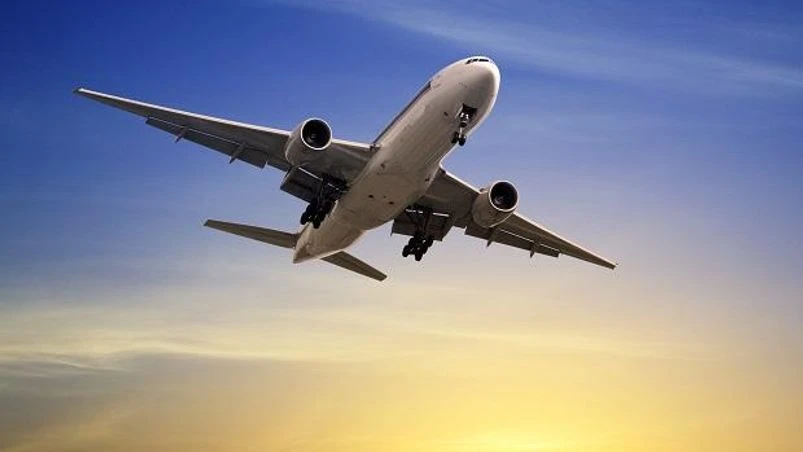 Will resumption of overseas flights revive fortunes of aviation sector?
Will resumption of overseas flights revive fortunes of aviation sector?
After two years, regular international flights will resume beginning March 27. It will replace India's air-bubble arrangement with 37 countries. What does it mean for aviation and tourism industry?
Krishna Veera Vanamali New Delhi
)
Photo: Shutterstock
Like the rest of the world, India had also put a halt on international passenger flights when first wave of pandemic struck two years ago. Regular international flights were first banned for a week starting March 23, 2020. But it stretched to two years. In between, more than 20,000 employees across airlines and ground handling agencies have lost their jobs in the last two years.
The government had earlier planned to lift the ban on December 15 last year, but another wave poured cold water on it.
Now, India has announced to resume scheduled international passenger flights from March 27.
The resumption of such flights now will mean an end to the temporary air-bubble arrangements that India negotiated with many countries starting July 2020. India currently has reciprocal air transport bubbles with 37 countries including the US, Canada, UAE and the UK.
Airlines were allowed to operate only a limited number of flights to these countries. And the tickets were expensive.
The government’s move to start regular flights will boost international capacity and help soften airfares, which have been soaring due to increased demand and rise in crude oil prices. International routes also mean higher revenue earned per seat.
On Tuesday, there were 584 international flights, which is less than 50% of pre-Covid capacity. Despite the government allowing domestic airlines to operate at 100% capacity, IndiGo had a few planes grounded in its 270-aircraft fleet.
“This step will provide an impetus to economic recovery for the sector and the nation, with borders opening for tourists. We look forward to connecting our customers to the people and places they love. We will soon be announcing the schedule for our international destinations in accordance with these new guidelines,” said IndiGo Chief Executive Officer (CEO) Ronojoy Dutta.
IndiGo CEO Ronojoy Dutta said the government’s step will provide an impetus to the sector’s recovery. The airline will soon announce its schedule for international destinations.
As domestic travel rebounded, airlines were eagerly waiting for unrestricted international travel to restart. IndiGo and SpiceJet posted surprise profits in the October-December period after seven quarters.
The latest announcement provides a glimmer of hope for the hospitality industry too, which was among the hardest hit during the pandemic. 20-30% of hotels and restaurants in India are estimated to have permanently shut down since 2020.
Tourism and hospitality sector is a major foreign exchange earner for India. It brought in $30 billion in 2019 but this declined sharply in 2020.
India’s vibrant medical tourism industry will also get a boost. The industry was expected to reach $9 billion in 2020, but it didn’t happen due to the pandemic. Large private hospitals get 10-15% of their revenue from medical tourism.
From nearly seven lakh in 2019, foreign tourists arriving for medical treatment in India fell 73% to 1.82 lakh in 2019. The industry has recovered to half of its pre-Covid size last year and this is expected to gather pace. With the last of the restrictions on tourism now being lifted, it will have a multiplier effect on various service-oriented sectors.
Open skies will turn the fortunes of aviation industry in long run. But, right now, a sharp rise in the prices of jet fuel due to Russia-Ukraine war may prove to be dampener for the industry, as it accounts for almost 40% of airlines' operating cost.
Watch video
Also Read
Don't miss the most important news and views of the day. Get them on our Telegram channel
First Published: Mar 10 2022 | 8:15 AM IST

